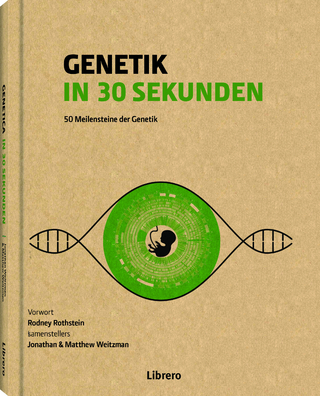
Methods of Hybridoma Formation
Humana Press Inc. (Verlag)
978-1-4612-9179-4 (ISBN)
Current Methodologies in Hybridoma Formation.- Retroviruses and Hybridoma Formation: Bystanders or Active Participants?.- Mechanisms of Cell Fusion and Selection in the Generation of Hybridomas.- Chemically Mediated Cell Fusion.- Electrofusion of Cells.- Enhancement of Hybridoma Formation.- Modification of HAT Medium and Hybridoma Formation.- Culture Methods for the Selection and Isolation of Stable Antibody-Producing Murine Hybridomas.- Selection of Growth Factors and Myelomas To Enhance Monoclonal Antibody-Producing Hybridoma Formation.- Proliferation and Immune Secretion of B-Cell Hybridomas.- Statistical Assessment of Hybridoma Monoclonality After Subcloning by the Limiting Dilution Technique.- In Vitro Immunization for the Generation of Hybridomas Using Serum-Free Medium.- Intrasplenic Immunization for the Production of Monoclonal Antibodies.- Use of Heteromyelomas in the Enhancement of Human Monoclonal Antibody Production.- Human Hybridomas: Fusion Partners.- Antibody-Secreting Human-Human Hybridomas: Technical Progress, Generation Obstacles, and Applications.- Interspecific Hybridomas.- Rat-Rat Hybridoma Formation and Rat Monoclonal Antibodies.- Generation of Mutant Monoclonal Antibodies.- Ranking the Affinities of Monoclonal Antibodies.- Intrasplenic Inoculation: A Method for Rescuing Hybridoma Clones.- Cryopreservation in Hybridoma Production.- Early and Late Freezing of Hybridoma Clones.- Flow Cytometry in Hybridoma Technology.- Regulatory Issues Surrounding Therapeutic Use of Monoclonal Antibodies: Points To Consider in the Manufacture of Injectable Products Intended for Human Use.- Human-Mouse Hybridoma Formation.
| Reihe/Serie | Contemporary Biomedicine ; 7 |
|---|---|
| Zusatzinfo | 504 p. |
| Verlagsort | Totowa, NJ |
| Sprache | englisch |
| Maße | 152 x 229 mm |
| Themenwelt | Naturwissenschaften ► Biologie ► Genetik / Molekularbiologie |
| Naturwissenschaften ► Biologie ► Mikrobiologie / Immunologie | |
| Naturwissenschaften ► Biologie ► Zellbiologie | |
| Technik ► Umwelttechnik / Biotechnologie | |
| ISBN-10 | 1-4612-9179-8 / 1461291798 |
| ISBN-13 | 978-1-4612-9179-4 / 9781461291794 |
| Zustand | Neuware |
| Haben Sie eine Frage zum Produkt? |
aus dem Bereich


